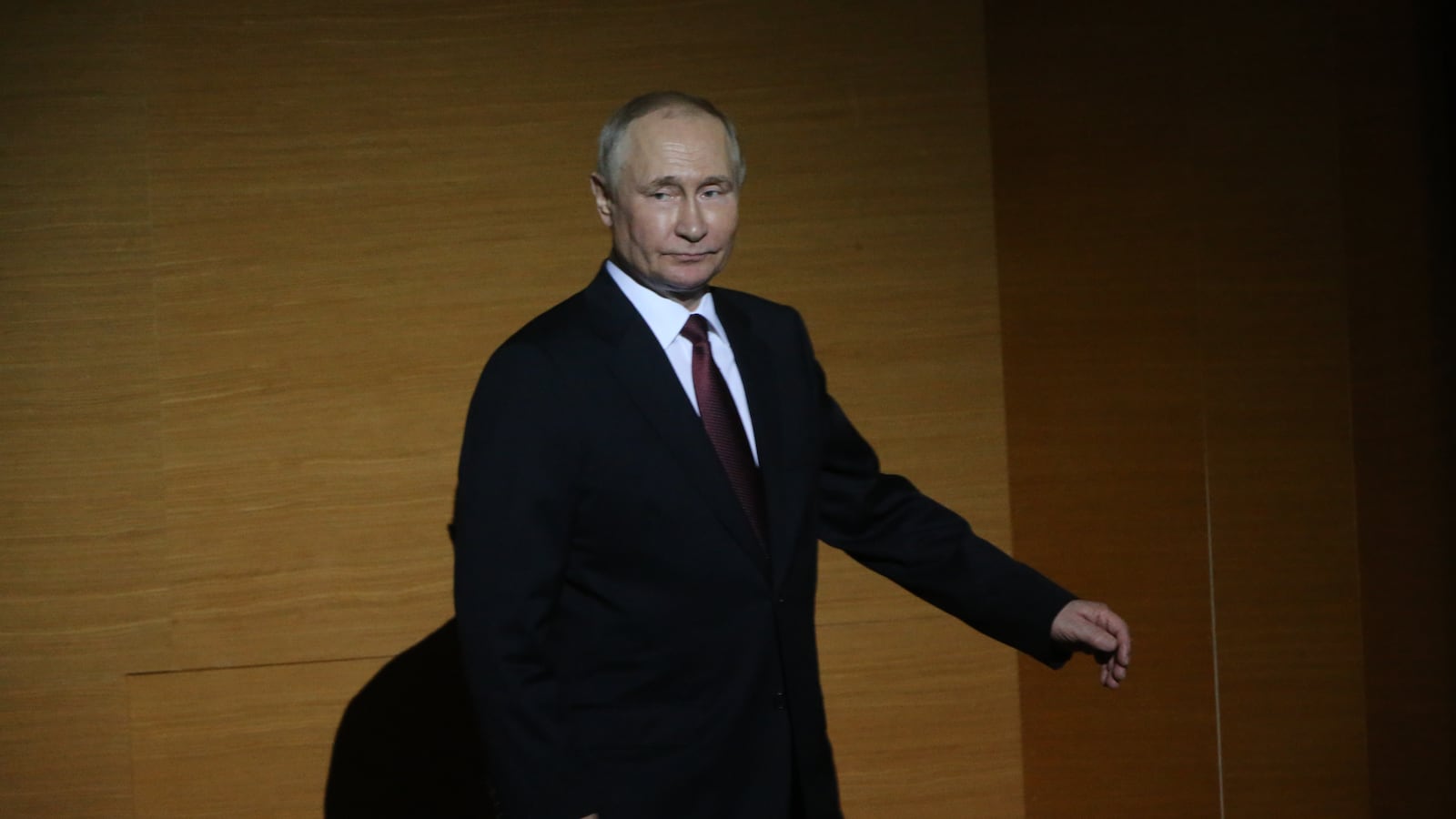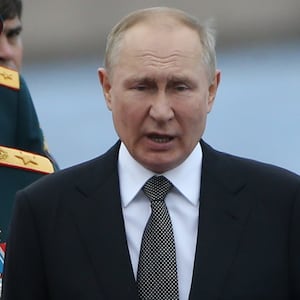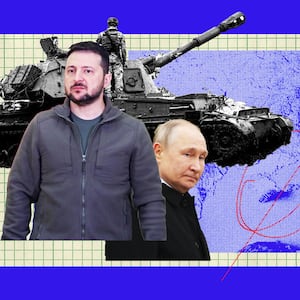Just hours after Russia claimed that it would be retreating from the strategically key city of Kherson in Ukraine, American and Ukrainian officials are expressing some skepticism about Russia’s plans.
Losing Kherson, which Russia seized at the beginning of the invasion this year, would be a major loss to Russian President Vladimir Putin. It’s been a key part of Russia’s attempts to build a land bridge to Crimea, which Russia illegally annexed in 2014, and losing it would prevent Moscow from achieving a land bridge to the port city of Odesa as well. Some officials have cautioned that Moscow’s televised announcement of retreat might be an attempt to draw Ukrainian forces into a battle under the impression that Russia has given up the fight.
An all-out retreat may not have culminated since Wednesday, when Russian Defense Minister Sergei Shoigu announced the withdrawal, according to the White House. The Biden administration sees “some indications of movement,” President Joe Biden’s National Security Adviser Jake Sullivan told reporters in a briefing Thursday. But as to the final outcome, the administration is waiting to see what the Russians do, Sullivan said.
“This is an involved operation. The Russians have flowed a significant number of forces and personnel into Kherson city and to the west side of the Dnieper river. So it’s not the kind of thing you just snap your fingers and it’s done,” Sullivan said. “So we will want to see how it actually unfolds in the coming days before we make any judgments about whether the Russians are fully following through.”
Any potential retreat from Russia will take place over the course of several days, according to a British intelligence assessment.
“It is likely that the withdrawal will take place over several days with defensive positions and artillery fires covering withdrawing forces,” the assessment, released Thursday, said.
Russian government officials, though, have been working to explain why Moscow wants to retreat, and have been attempting to spin the alleged withdrawal in their favor. The Russian-installed acting governor for the Kherson region, Vladimir Saldo, claimed Thursday that the decision to go to the left bank of the Dnieper river was difficult to make.
“Once again, we have to make difficult decisions,” Saldo said, according to TASS.
Saldo sought to avoid making the retreat look like a defeat, and instead tried to paint the withdrawal as a precursor to taking more territory in the future. "The people who live here hope for this. They believe in it," he said.
The Russian propaganda machine is in full swing. The commander of the Joint Group of Russian Forces, Sergei Surovikin, indicated Wednesday the Russians were withdrawing to try to save people’s lives. Petr Akopov, a Russian propagandist, said Thursday that Russia may have some ups and downs in Ukraine, but indicated that losses are only temporary.
“On February 24 this year, a historic choice was made, the Rubicon was crossed, after which Russia can only move forward. Stumbling, making mistakes, missing blows, concentrating, even temporarily retreating tactically, but strategically moving only forward,” Akopov wrote for RIA Novosti. “Russia returns itself to itself.”
The uncertainty about whether Russia is actually withdrawing from Kherson comes eight months into the invasion of Ukraine this year and approximately two months after Ukrainian forces began working to conduct counteroffensives against Russian forces. The counteroffensive has resulted in stunning successes for the Ukrainian troops in what had been a grinding war of attrition.
In addition to facing off with a series of defeats on the battlefield—over 100,000 Russian troops have been killed or wounded, Gen. Mark Milley, the chairman of the Joint Chiefs of Staff, said Wednesday—western officials say Russian logistics and supplies have been crippled, and Russia has failed to achieve its major objectives in the war.
The uncertainty about whether Russia is just giving up in Kherson has been gnawing at Ukrainian officials, who say that Ukraine will only secure a victory if its armed forces can push Russia out of all the territory it has claimed this year in Ukraine, as well as from the territory that Russia seized in 2014.
Mykhailo Podolyak, an adviser to Ukrainian President Volodymyr Zelensky, noted Wednesday that there is no indication Russia is leaving Kherson.
“Actions speak louder than words. We see no signs that Russia is leaving Kherson without a fight,” Podolyak said, adding Ukraine “is liberating territories based on intelligence data, not staged TV statements.”
Podolyak later told the AP that Russia’s rollout of its so-called retreat is just “disinformation.”
Zelensky himself urged caution about taking Moscow at its word.
“There is a lot of joy in the media space today, and it is clear why. But our emotions must be restrained,” Zelensky said. “The enemy does not bring us gifts, does not make ‘gestures of goodwill.’”
The Zelensky administration is also concerned that Russia could be preparing to damage the Kakhovka hydroelectric power plant and flood the land. Zelensky warned Russia against launching this final act of sabotage.
“I want separately and once again to warn everyone in Moscow who makes the relevant decisions: any attempt by you to blow up the Kakhovka HPP and flood our territory and dehydrate the Zaporizhzhia nuclear power plant will mean that you are declaring war on the whole world,” Zelensky said. “Think what will happen to you then.”
Russia, too, has indicated that the Kakhovka hydroelectric power plant is top of mind. The decision to allegedly retreat from Kherson was due in part to “the threat of the group’s isolation, which might occur should territories downstream from the Kakhovka hydroelectric power plant become flooded,” according to TASS.








